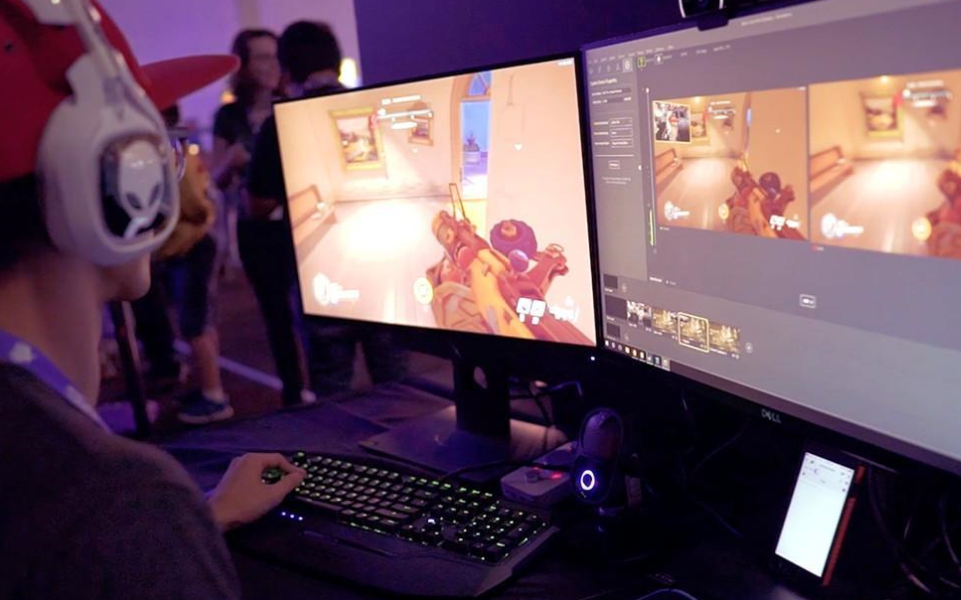
Gaming is an ever-evolving scene with new trends going in and out of fashion in the same way we see with clothes and music. In the 1980s and 1990s, platformers were all the rage, giving birth to popular franchises like Sonic and Mario. However, as technology improved and 3D gaming environments could be generated on the fly by consoles and computers, this style of game fell out of favour as developers shifted their attentions to first-person shooters, driving simulators, and open-world titles.
In the late 1990s and early 2000s, extreme sports games like Tony Hawk Pro Skater and SSX became popular, but apart from remastered versions of these titles, you’re unlikely to find many popular equivalents today.
With this in mind, what gaming trends can we expect to see this summer?
More Mobile Gaming
Playing games on the go used to mean carrying a chunky portable console around with you. Today, your smartphone is infinitely more powerful than many of Nintendo’s early handheld devices.
This has helped mobile gaming to grow exponentially over the past decade as almost everyone now has access to this new format. With a wider demographic playing games on their mobiles, the choice has also broadened. Today, players can download online casino games, online driving games, online fantasy games, and online shooting games to enjoy from their smartphone or tablet.
This is a trend that won’t change for the rest of this year either. In fact, mobile game downloads have continued to grow by around 30% per year, a rate that hasn’t waned in 2021 so far.
So if you make it to the beach or the park this summer, expect to see plenty of people tapping away at games on their smartphones.
Casual and Hyper-Casual Games
Mobile games have been bolstered by the casual category. These are titles that can be enjoyed for short periods of time and allow players to dip in and out of them at their leisure, rather than having to commit a large block of time to complete a level.
Most are free and rely on in-game purchases and ads to make money instead of charging the player upfront.
The format was popularized by games like Farmville, Angry Birds, and Candy Crush. They appeal to traditional and non-traditional gamers alike, including older people and women, making them infinitely more successful than other titles.
While casual games have been in demand for much of the last decade, Hyper-casual titles are a more recent phenomenon. Even casual games encourage players to spend a long time on each level. This is different for hyper-casual games like Slap Kings, Stair Run, and Rolly Hill.
They’re games that can be played for just a couple of minutes at a time, perfect for busy people who want to squeeze in some fun while they wait for a bus or in between Zoom meetings. They can also be enjoyed over and over again, with the same basic mechanics remaining entertaining despite hundreds of repetitions.
In 2020, hyper-casual gaming sessions rose by 72% and demand for them doesn’t look like it’s slowing down in 2021. At the time of writing, the majority of the top free games in the Google Play Store were all hyper-casual, including titles like Bounce and Collect, Plunger Hero, and BallRun2048. With this in mind, we can expect more of the same throughout the summer.
Funding Rounds, Mergers, and Acquisitions
While what goes on behind the scenes may not be something that is immediately noticed by players, it will make a big difference to the companies that create and publish games. In 2021, a lot has been happening behind the scenes of gaming companies like Epic Games and Electronic Arts.
Off the back of their success in the last few years, gaming companies have been growing their cash reserves. Since publicly traded companies are criticized by their shareholders for holding on to large piles of cash, most look to do something with them. The three main options are to issue dividends, buy back shares from investors, or invest in growing the business.
Electronic Arts has been doing all three. Before 2017, the company hadn’t acquired any other businesses for five years. Since then, it has made six acquisitions, including three since the beginning of 2021. It has bought the UK developer and publisher Codemasters, the US developer Glu Mobile, and the Canadian developer Metalhead Software to expand its portfolio of sports titles.
On the other hand, the privately-owned company behind Fortnite, Epic Games, has seen the opposite happen. It’s been running multiple funding rounds, acquiring cash from investors at regular intervals as it attempts to grow even larger.
Both instances go to show that the gaming industry is proving to be a hotbed for investment at the moment and unless there is a major upset in the wider economy and/or stock market, this is likely to continue through the summer and beyond.

Virtual and Augmented Reality
VR has been touted as the next big thing for several years now, but only a narrow segment of the market has shown much interest in strapping on a headset to play games.
This isn’t fundamentally going to change much in the next couple of months, but game developers and hardware manufacturers will continue to chip away at trying to make the format more attractive.
They’ve already made big strides with the introduction of wireless headsets like the Oculus Quest 2.
More VR games are likely to be published over the summer, including ForeVR Bowl and Zero Caliber: Reloaded. As more titles make it to market, the format will become more attractive among players.
As for AR, the technology remains in its infancy and more work is required before it can be rolled out in consumer games. So gamers hoping to see AR titles this summer are going to be left disappointed.








